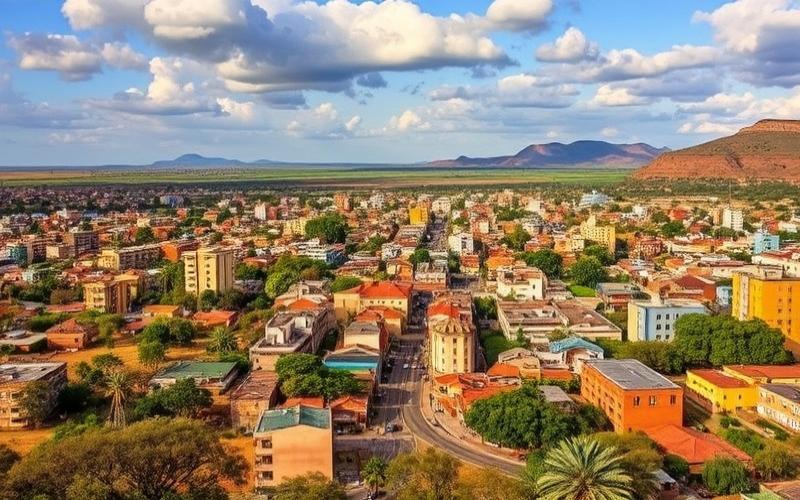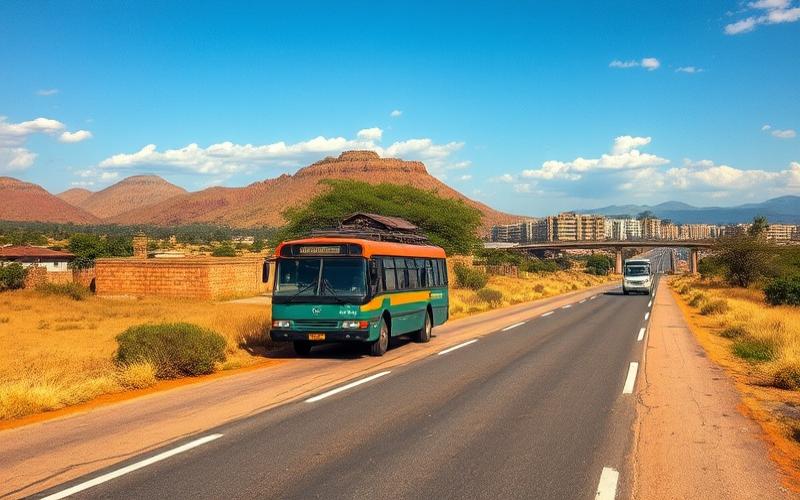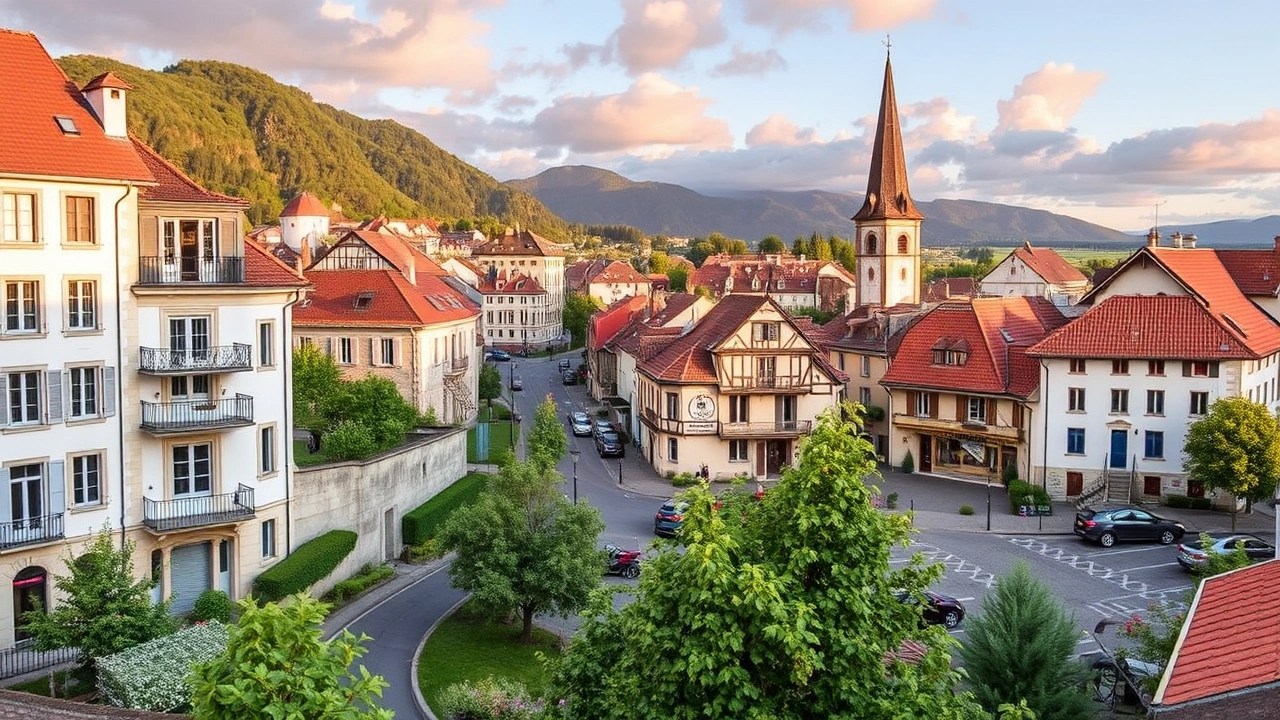
 Published on and written by Cyril Jarnias
Published on and written by Cyril Jarnias
Relocating to South Africa, a country of contrasts and unparalleled beauty, may seem like an exciting adventure but it also raises crucial questions about personal safety and daily well-being. In this article, we explore practical tips and proven strategies to ensure your new life in South African territory unfolds with peace of mind and confidence. From cultural adaptation to understanding high-risk areas, our guide provides essential recommendations for successfully navigating this dynamic and fascinating environment, helping you transform your expatriation into a rewarding and secure experience.
South Africa: Safe Destination for Expatriates?
Crime Level in South Africa
South Africa displays one of the highest crime rates in the world, with a crime index of 74.7 in 2025, ranking it as the fifth most dangerous destination globally. Between January and March 2025, nearly 5,727 murders were recorded, primarily in the provinces of Gauteng, KwaZulu-Natal, Western Cape, and Eastern Cape. Violent crimes (murders, assaults, armed robberies, rapes) affect both residents and foreigners, and expatriates are sometimes among the victims.
Comparative Table of Crime Indices by South African City (2025)
| City | Crime Index | Safety Index |
|---|---|---|
| Pietermaritzburg | 82.00 | 18.00 |
| Pretoria | 81.84 | 18.16 |
| Johannesburg | 80.81 | 19.19 |
| Durban | 80.57 | 19.43 |
| Port Elizabeth | 78.13 | 21.87 |
| Cape Town | 73.67 | 26.33 |
Safest Neighborhoods for Expatriates
Neighborhoods favored by expatriates are generally safer due to enhanced security and strong international community presence. Examples of recommended neighborhoods:
- Johannesburg: Sandton, Rosebank, Melrose, Bryanston
- Cape Town: Camps Bay, Sea Point, Claremont, Constantia
- Pretoria: Waterkloof, Brooklyn, Lynnwood
- Durban: Umhlanga, Durban North, La Lucia
Conversely, it is strongly advised to avoid certain neighborhoods like Hillbrow, Berea, Yeoville (Johannesburg), Sunnyside (Pretoria), and some areas of downtown Durban and Cape Town after dark.
Practical Tips to Minimize Risks
- Install a home security system (alarm, cameras, electric fence).
- Choose residences or secured complexes with guard services.
- Avoid walking alone or on foot at night, even in reputedly safe neighborhoods.
- Prefer private transport or ride-hailing services (Uber, Bolt) over public transport or unlicensed taxis.
- Keep valuables out of sight and avoid wearing flashy jewelry in public.
- Always lock doors and windows, even when present.
- Be attentive when withdrawing money from ATMs, prefer those located in shopping malls.
Expatriate Testimonials
“We’ve been living in Sandton for two years. The neighborhood is very secure, but we still installed an alarm and avoid going out on foot after 8 PM. The children go to school by private shuttle. We’ve never been assaulted, but remain vigilant.”
“I was a victim of an attempted robbery leaving a shopping mall in Johannesburg. Since then, I prefer local neighborhood shops and no longer move around without being accompanied, especially in the evening.”
“In Cape Town, safety depends a lot on the neighborhood: in Sea Point, you feel relatively at ease, but I still prefer using Uber at night.”
Government and Community Initiatives
- Strengthening police forces in high-risk areas and increasing controls on legal and illegal firearms.
- Dismantling organized crime networks (drug trafficking, kidnappings, extortion).
- Private security patrols and neighborhood watch schemes in many residential areas.
- Community programs for crime prevention, safety education, and victim support.
- Emergency hotlines and alerts available to report incidents or request rapid assistance.
Good to know:
Neighborhoods such as Sandton and Camps Bay are considered safer for expatriates, with testimonials emphasizing the importance of home security systems and preference for reputable ride-hailing services like Bolt or Uber, while government initiatives strengthen police presence and encourage neighborhood patrols.
Essential Tips for Optimal Safety in South Africa
Practical tips for optimal safety as an expatriate in South Africa:
Traveling by Car:
- Prefer using reputable taxis or ride-hailing services.
- Avoid driving at night, especially in less frequented neighborhoods.
- Keep doors and windows locked during stops (traffic lights, stop signs).
- Never stop for unknown persons on the road.
- If intercepted by a fake police officer, do not stop; proceed to the nearest police station.
Traveling on Foot:
- Walk only in busy and well-lit areas.
- Avoid neighborhoods identified as dangerous or isolated, particularly in Johannesburg (Hillbrow, Berea, Alexandra) and certain townships without reliable local accompaniment.
- Carry closed bags on the building side; never leave personal belongings unattended.
Housing Choice:
| Criterion | Recommendation |
|---|---|
| Location | Favor secure residential neighborhoods |
| Physical Security | Choose residence with guard service/secure gate |
| Systems | Install connected alarms and cameras if possible |
Risk Areas & Local Information:
Regularly consult local media and official sites to know the evolution of risk areas.
Avoid any unaccompanied travel in certain parts of Johannesburg (Melville after dark), Soweto outside organized tours, Port St Johns or Coffee Bay.
Reliable Local Contacts:
Establish contact with neighbors or South African colleagues to obtain practical advice.
Register with the consulate/embassy and on Ariane to be quickly informed in case of emergency.
Home Security Systems:
- Install connected motion sensor alarms
- Regularly check the proper functioning of devices
- Have a clear procedure in case of intrusion
Personal Habits Minimizing Risks:
- Carry little cash
- Do not display valuables
- Make bank withdrawals only in secure shopping/banking centers
- Avoid any financial exchange in public places
Use of Private Services:
Use recognized private companies for airport transfers/temporary housing.
Ensure any chosen company is accredited.
Emergency Situation Management:
- Always keep a paper/digital list on you:
- Local emergency numbers (police: 10111; ambulance: 10177)
- Embassy/consulate contact
- Plan a clear family/work plan according to different scenarios (burglary, assault…).
Cultural Adaptation & Local Understanding:
Observe local customs regarding travel and public behavior
Adapt to South African schedules (avoid late outings)
Actively seek information from experienced expatriates or local communities
Quick Checklist of Essential Daily Reflexes:
- Always check your environment before each trip
- Stay informed daily via local media
- Seek advice from reliable contacts before visiting a new area
- Systematically lock doors/windows at home and during travel
Good to know:
Choose residences with security systems, establish reliable local contacts, and keep informed about risk areas for secure travel; the use of private security services may be necessary for certain trips. Adapt to the local culture to better understand security dynamics and react effectively if needed.
Enhancing Your Safety When Relocating to South Africa
Before moving to South Africa, it is essential to adopt personal safety measures to minimize risks related to crime and local conditions.
Knowledge of Safe and Avoidable Areas
- Prefer secure residential neighborhoods and avoid those reputed dangerous like Hillbrow, Berea, Alexandra, Yeoville, or certain sectors of old downtown Johannesburg.
- Limit yourself to guided tours in townships (e.g., Soweto) or be accompanied by a reliable local.
- Be extremely vigilant in certain cities like Port St Johns or Coffee Bay on the Wild Coast.
Installation of Security Devices at Home
- Install alarms, cameras, electric fences, and reinforced doors.
- Ensure the residence has a guard service or private security company if possible.
- Always lock doors and windows even during the day.
Subscription to Health and Safety Insurance
- Take out international health insurance covering private medical care as well as medical repatriation.
- Verify that your contract includes coverage against theft, assault, or kidnapping.
Staying Informed of Local and Socio-Political News
Regularly consult local press to follow the evolution of protests or social unrest that may affect your mobility.
List of Strategies to Build a Local Network
- Participate in community events organized by embassies/consulates or expatriate associations.
- Use professional networks (LinkedIn, local clubs) to find reliable contacts on site.
- Seek advice from local colleagues regarding safe providers (private drivers, real estate agencies).
Access to Private Services
Subscribe to a recognized private company offering regular patrols around the home and assistance in case of serious incident.
Practical Tips for Transport
| Situation | Potential Risks | Recommended Precautions |
|---|---|---|
| Public Transport | Frequent thefts, assaults | Avoid unofficial buses/minibuses; prefer Uber/known applications |
| Car Driving | Carjacking; fake police; traffic jams during protests | Keep windows closed; do not stop except in safe place/official police; plan route outside risky hours |
Other Essential Tips
- Exercise discretion daily:
- Do not display outward signs of wealth (expensive jewelry/visible technology)
- Avoid any ostentatious behavior likely to attract attention
- Withdraw money only in secure places (banks/shopping malls)
- Keep bag closed carried on the building side
Useful Resources
| Resource | Role |
|---|---|
| Embassy / Consulate | Administrative assistance & emergency |
| Expatriate Associations | Social support & practical advice |
| Ariane Services | Presence reporting + alerts |
For any urgent situation: immediately contact the embassy/consulate which can direct you to appropriate medical/security services.
Always take note of official recommendations before any domestic travel.
Good to know:
Inform yourself about safe neighborhoods before settling, equip your home with adequate security devices, and subscribe to health and safety insurance; stay informed about local news and socio-political conditions, be discreet in your daily life, prefer private security services if necessary, and consult embassy and community organization resources for appropriate support.
Disclaimer: The information provided on this website is for informational purposes only and does not constitute financial, legal, or professional advice. We encourage you to consult qualified experts before making any investment, real estate, or expatriation decisions. Although we strive to maintain up-to-date and accurate information, we do not guarantee the completeness, accuracy, or timeliness of the proposed content. As investment and expatriation involve risks, we disclaim any liability for potential losses or damages arising from the use of this site. Your use of this site confirms your acceptance of these terms and your understanding of the associated risks.
























































